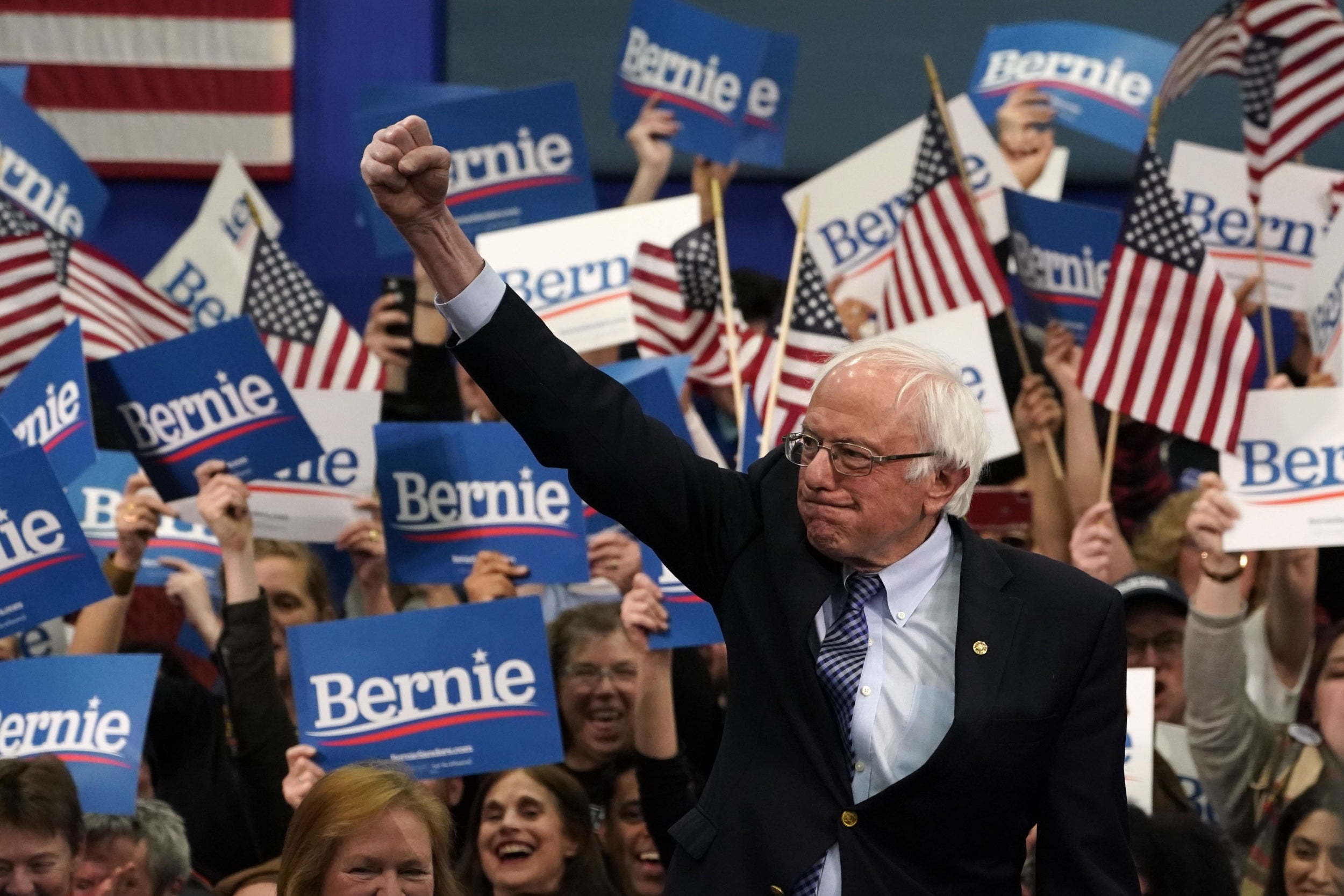Bernie Sanders won more young voters in New Hampshire than other candidates combined, poll says
Would-be Democratic presidential candidate dominates among under-30s, but struggles with older voters

Your support helps us to tell the story
From reproductive rights to climate change to Big Tech, The Independent is on the ground when the story is developing. Whether it's investigating the financials of Elon Musk's pro-Trump PAC or producing our latest documentary, 'The A Word', which shines a light on the American women fighting for reproductive rights, we know how important it is to parse out the facts from the messaging.
At such a critical moment in US history, we need reporters on the ground. Your donation allows us to keep sending journalists to speak to both sides of the story.
The Independent is trusted by Americans across the entire political spectrum. And unlike many other quality news outlets, we choose not to lock Americans out of our reporting and analysis with paywalls. We believe quality journalism should be available to everyone, paid for by those who can afford it.
Your support makes all the difference.An exit poll conducted during the New Hampshire primary suggests Bernie Sanders’s dominance among young voters is holding up – beating all the other Democratic primary candidates put together with voters under 30.
Sanders won 51 per cent of the vote among voters aged 18 to 29 in the crucial first-in-the-nation primary. He narrowly won the primary overall with 25.7 per cent of the vote, edging out Pete Buttigeig at 24.4 per cent and Amy Klobuchar at 19.8 per cent.
But while his younger voter base is reliably propping up his poll numbers, Sanders is struggling to attract support from older Democrats. In the New Hampshire exit poll, he ranked third behind Buttigeig and Klobuchar with voters aged 45-64 (20 per cent) and 64 and over (15 per cent).
There are other signs that Sanders’ strength amongst younger Democrats will not be enough to guarantee him the nomination.
While Sanders has promised to finally deliver the political revolution he campaigned for in 2016, neither the New Hampshire primary nor the chaotic Iowa caucuses saw the hoped-for surge in turnout compared to the contests four years ago.
While the raw number of votes cast in New Hampshire was notably higher than last time around, the electorate has also grown, meaning turnout among eligible voters (including independents, who can vote in the Democratic primary) did not break the record.
As FiveThirtyEight’s Nate Silver put it: “While Democratic turnout has been just fine, it has not exactly been revolutionary.
More worrying for him still, younger voters have so far made up a smaller proportion of those voting this time round, dropping from 19 per cent to 14 per cent.
If Sanders is the nominee and fails to expand his base beyond the young, this bodes ill for the national election in November. Younger people tend not to vote in the numbers that older people do; in fact, they are often the only age group where more than half of eligible voters do not vote.
There are still at least five credible candidates running for the Democratic nomination: Sanders, Buttigeig, Klobuchar, Elizabeth Warren and Joe Biden. Billionaires Tom Steyer and Michael Bloomberg have ignored the first primaries in hopes of dominating the race later on.
The next voting contest is the Nevada caucuses, to be held on 22 February.
UPDATE (26.02.20) A previous version of this article reported that turnout in both the New Hampshire and Iowa caucuses was "significantly down" compared to turn out in 2016. The article has been amended to clarify that while the number of votes cast in the New Hampshire caucuses increased, it did not do so at a rate akin to that which was observed four years ago.
Join our commenting forum
Join thought-provoking conversations, follow other Independent readers and see their replies
Comments